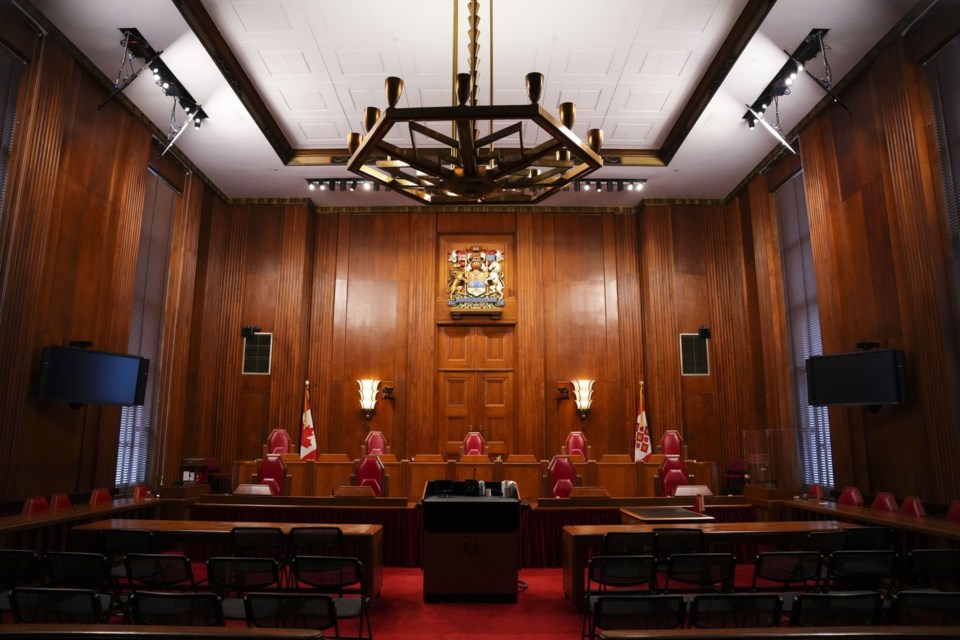OTTAWA — The Supreme Court of Canada will hear a challenge of Quebec's secularism law, setting up a final legal battle between the provincial government and minority and civil rights groups that say the legislation is discriminatory and unconstitutional.
The country's top court announced Thursday morning it has granted leave to appeal to several groups that oppose the law, which prohibits civil servants in positions of authority, including teachers and police officers, from wearing religious symbols on the job.
Bill 21 was passed in 2019 by the Quebec government, which pre-emptively invoked Section 33 of the Canadian Charter of Rights and Freedoms, known as the notwithstanding clause, to shield the legislation from court challenges over fundamental rights violations.
The Quebec government has long argued Bill 21 is reasonable, and reaction from the province came swiftly following the court's decision.
"One thing is certain, the Quebec government will fight to the end to defend the law," said Attorney General Simon Jolin-Barrette and Secularism Minister Jean-François Roberge in a statement on X. "Quebecers have chosen secularism; a collective and legitimate choice that represents the culmination of decades of debate."
Several groups have fought the law since it was passed, and on Thursday they welcomed the chance to have the Supreme Court rule on its constitutionality. Harini Sivalingam, director of the equality program at the Canadian Civil Liberties Association — one of the groups challenging the law — said she hopes the court will strike down Bill 21, and set guidelines on governments' use of the notwithstanding clause.
“What is at stake is whether governments can violate our rights and freedoms without any judicial oversight,” she said during a press conference in Ottawa.
To date, the secularism law has been largely upheld by lower courts. In April 2021, a Quebec Superior Court judge ruled Bill 21 was mostly legal, but exempted English-language school boards and struck down a ban on members of the provincial legislature wearing face coverings.
At the time, Justice Marc-André Blanchard criticized the government’s use of the notwithstanding clause, and found the law violates the rights of Muslim women and “dehumanizes” those affected. Still, he found the government’s approach was “legally unassailable in the current state of the law.”
Last February, the Quebec Court of Appeal upheld the secularism law and overturned the exemption for English schools in a victory for Quebec Premier François Legault.
Several groups sought leave to appeal that decision to the country’s top court, including the National Council for Canadian Muslims, the Canadian Civil Liberties Association and the English Montreal School Board.
Meanwhile, the federal Liberal government has said it would intervene in support of a Supreme Court challenge of Bill 21. On Wednesday evening, the Liberals' Quebec lieutenant, Jean-Yves Duclos, said on X that the next Liberal leader "must commit to protecting the Canadian Charter of Rights and Freedoms and respecting the independence of our judicial system."
The Conservatives have not said what they would do, though party leader Pierre Poilievre has said he opposes the law.
In their statement, Jolin-Barrette and Roberge warned that any federal government intervention would represent "not only a lack of respect, but could not be considered anything other than an attack on the autonomy of the federated states."
Stephen Brown, CEO of the National Council of Canadian Muslims, pointed out that other provinces, including Saskatchewan and Ontario, have pre-emptively invoked the notwithstanding clause since the Quebec government did so in 2019. “(Legault) let the genie of legal authoritarianism out of the bottle," he told reporters in Ottawa. “What was supposed to be an extraordinary use of power has now become the norm.”
In a rare move, Supreme Court Justice Mahmud Jamal recused himself from the case last summer at the request of the attorney general of Quebec, who had cited his past connection to the Canadian Civil Liberties Association.
This report by The Canadian Press was first published Jan. 23, 2025.
— By Maura Forrest in Montreal
The Canadian Press
